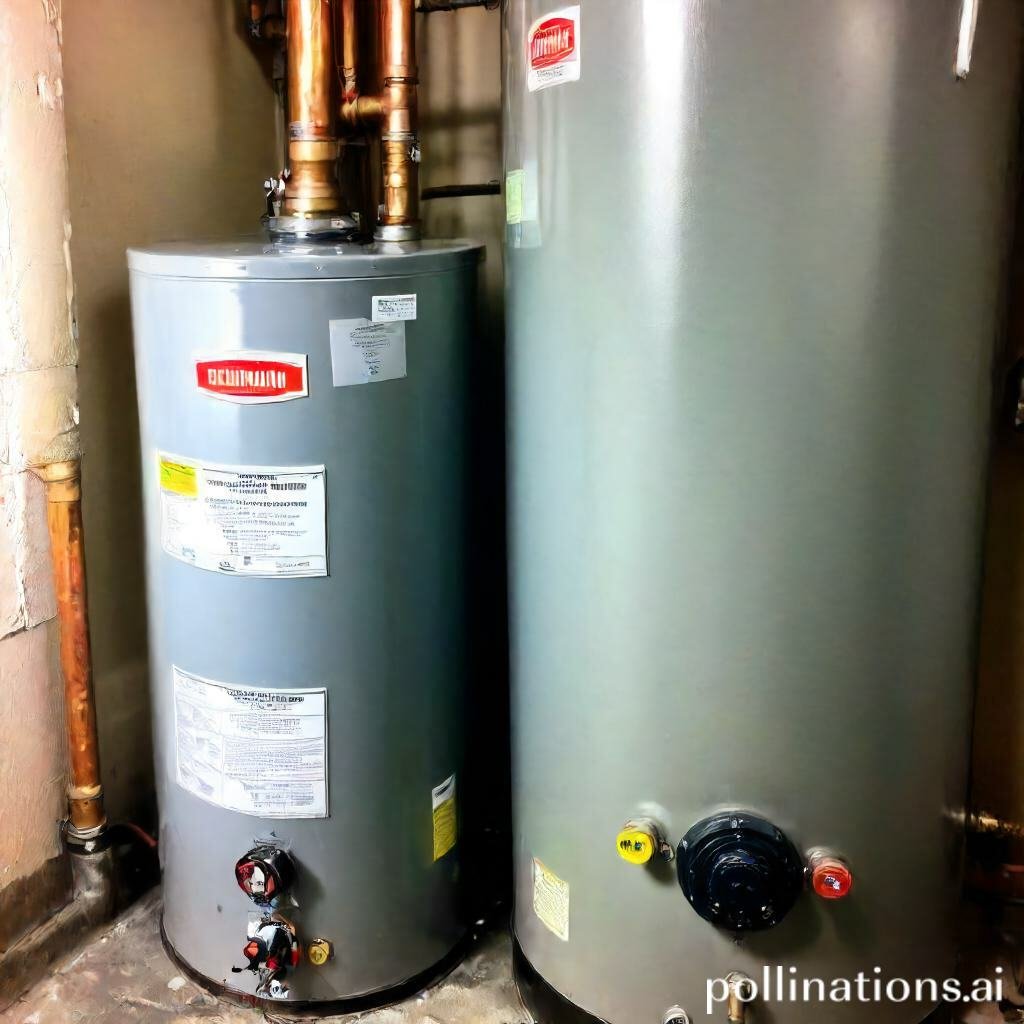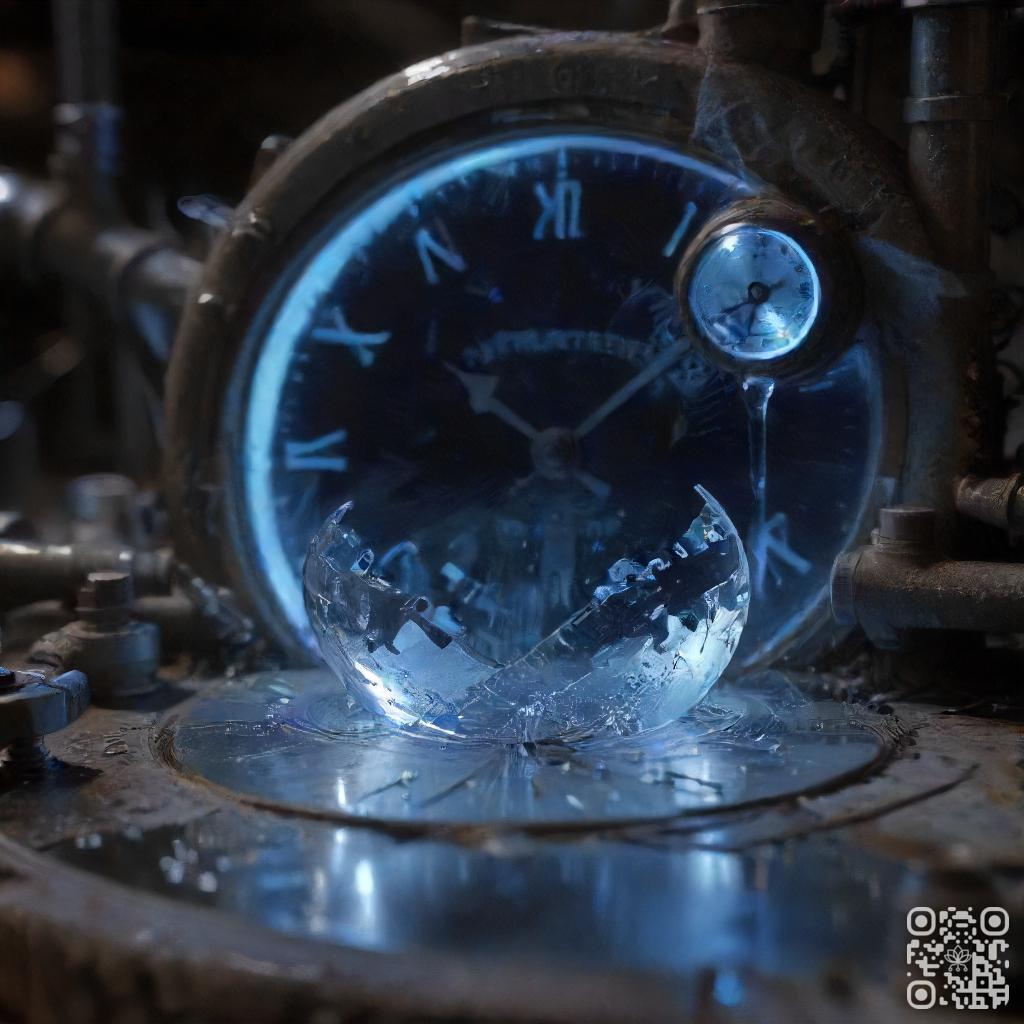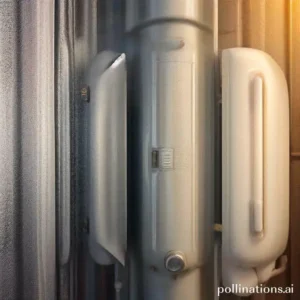
II. Fixing leaks in commercial water heaters requires identifying the source of the leak, draining the tank, and repairing or replacing the damaged parts.
III. Regular maintenance, including flushing the tank and checking the pressure relief valve, can help prevent future leaks and extend the lifespan of the water heater.
Commercial water heaters play a crucial role in providing hot water for businesses. Despite this, leaks can be a major problem that impact efficiency and increase costs.
In this article, we will discuss the importance of fixing leaks in commercial water heaters. We will navigate the potential causes of leaks, the negative effects they can have on businesses, and the benefits of timely repairs.
By cognizing the significance of addressing leaks, businesses can ensure their water heaters operate smoothly and efficiently, saving both money and resources.
Identifying the Source of the Leak
As for dealing with a leaking water heater, the first step is to identify the source of the leak. By inspecting different components, you can determine the cause and take appropriate action to fix it.
1. Inspecting the Drain Valve
One possible source of the leak is the drain valve. This valve is located at the bottom of the water heater tank and is used to drain the tank for maintenance or repairs. Inspect the drain valve for any signs of leakage or loose connections. If you notice any issues, tighten the connections or replace the valve if necessary.
2. Checking the Temperature and Pressure Relief Valve
The temperature and pressure relief valve is another potential culprit for leaks. This valve is designed to release excess pressure or temperature from the tank to prevent explosions. Check for any signs of leakage or corrosion around the valve. If it is leaking, it may need to be replaced to ensure the safety of the water heater.
3. Examining the Tank and Connections
The tank itself and its connections should also be inspected for leaks. Look for any visible signs of water pooling, dampness, or corrosion. Check the connections between the tank and the pipes, as well as any valves or fittings. Tighten any loose connections and replace any damaged or corroded parts.
| Component | Possible Issues | Solution |
|---|---|---|
| Drain Valve | Leakage, loose connections | Tighten connections or replace valve |
| Temperature and Pressure Relief Valve | Leakage, corrosion | Replace valve if leaking |
| Tank and Connections | Leaks, corrosion | Tighten connections, replace damaged parts |
Fixing the Leak
In terms of commercial water heaters, leaks can be a common issue that needs immediate attention. To ensure the smooth operation of your water heater and prevent any further damage, it is crucial to address leaks promptly. In this section, we will discuss the necessary steps to fix leaks in commercial water heaters.
1. Drain Valve Replacement
One of the primary causes of leaks in water heaters is a faulty drain valve. The drain valve is responsible for releasing excess water and sediments from the tank. Over time, due to wear and tear, the drain valve may develop leaks. To fix this issue, it is recommended to replace the drain valve with a new one. This simple replacement can effectively stop leaks and restore the proper functioning of your water heater.
2. Temperature and Pressure Relief Valve Replacement
The temperature and pressure relief valve is another crucial component of a water heater that can experience leaks. This valve is designed to release excess pressure and maintain the temperature within safe limits. If the temperature and pressure relief valve is leaking, it is essential to replace it immediately. Failure to address this issue can lead to potential safety hazards and further damage to the water heater.
3. Tank and Connection Repair
If the leaks persist after replacing the drain valve and temperature and pressure relief valve, it may indicate a problem with the tank or its connections. In such cases, it is advisable to inspect the tank and connections for any signs of damage or corrosion. Repairing any cracks or leaks in the tank and ensuring secure connections can effectively resolve the issue and prevent future leaks.
Preventing Future Leaks
Leaks can cause significant damage and inconvenience, but with proper maintenance and precautions, they can be prevented. Here are some effective strategies to ensure a leak-free environment:
1. Regular Maintenance
Maintaining your plumbing system is crucial to prevent leaks. Regular inspections and maintenance can identify potential issues before they turn into major problems. It is recommended to hire a professional plumber to conduct regular check-ups and address any minor leaks or damages.
2. Replacing Old or Faulty Parts
Over time, components of your plumbing system may wear out or become faulty, increasing the risk of leaks. It is essential to replace old or worn-out parts promptly. This includes faucets, pipes, valves, and seals. By replacing these components, you can ensure the integrity and efficiency of your plumbing system.
3. Installing a Leak Detection System
A leak detection system can provide an added layer of protection against leaks. These systems use advanced technology to detect even the smallest leaks, allowing you to address them before they cause significant damage. Consider installing a leak detection system in critical areas such as basements, bathrooms, and kitchens.

Hiring a Professional
In regard to certain tasks, hiring a professional can make all the difference. Whether you need a plumber to fix a leaky faucet or an electrician to rewire your home, professionals have the expertise and experience to get the job done right. In this section, we will investigate the benefits of hiring a professional and provide tips on how to choose the right one for your needs.
The Benefits of Hiring a Professional
There are several advantages to hiring a professional for your project. First and foremost, professionals have the knowledge and skills necessary to handle complex tasks. They have undergone extensive training and education in their respective fields, ensuring that they are equipped to handle any challenges that may arise.
Additionally, professionals have access to specialized tools and equipment that may not be readily available to the average person. This allows them to complete tasks more efficiently and effectively, saving you time and money in the long run.
Furthermore, hiring a professional provides you with peace of mind. Knowing that your project is in the hands of an expert can alleviate stress and give you confidence that the job will be done to the highest standard.
How to Choose the Right Professional
Choosing the right professional for your specific needs is crucial to the success of your project. Here are some factors to consider when making your decision:
1. Experience and Qualifications
Look for professionals who have ample experience and the necessary qualifications in their field. Check their credentials and ask for references or examples of their past work to ensure they have a proven track record of success.
2. Reputation and Reviews
Research the professional’s reputation and read reviews from previous clients. This will give you insight into their customer satisfaction and the quality of their work.
3. Cost and Budget
Consider your budget and obtain quotes from multiple professionals. In the course of cost should not be the sole determining factor, fundamental to find a professional who offers a fair price for their services.
4. Communication and Compatibility
Ensure that you can effectively communicate with the professional and that you feel comfortable working with them. Clear communication is essential for a successful partnership.
| Benefits of Hiring a Professional | How to Choose the Right Professional |
|---|---|
| – Expertise and experience | – Experience and qualifications |
| – Access to specialized tools and equipment | – Reputation and reviews |
| – Peace of mind | – Cost and budget |
| – Communication and compatibility |

DIY vs. Professional Repair
As for repairing a broken item or fixing a malfunctioning gadget, you are faced with a choice between DIY repair or seeking professional help. Both options have their advantages and disadvantages, and it’s important to consider them before making a decision.
Pros and Cons of DIY Repair
DIY repair can be a rewarding experience, especially if you enjoy tinkering with things and have some technical knowledge. Here are some pros and cons to consider:
- Pros:
- Cost-effective: DIY repair can save you money, as you won’t have to pay for professional services.
- Learning opportunity: Taking on a repair project yourself allows you to learn new skills and gain knowledge about how things work.
- Flexibility: You can work on the repair at your own pace and schedule.
- Cons:
- Time-consuming: DIY repair can be time-consuming, especially if you are not familiar with the item or gadget you are trying to fix.
- Risk of further damage: If you make a mistake during the repair process, you may end up causing more harm than good.
- Lack of expertise: Some repairs require specialized knowledge and tools that you may not have.
- Pros:
- Expertise: Professionals have the knowledge and experience to handle repairs efficiently and effectively.
- Time-saving: By hiring a professional, you can save time and effort, as they are trained to quickly diagnose and fix issues.
- Quality guarantee: Professional repair services often come with warranties, ensuring that the job is done correctly.
- Cons:
- Cost: Professional repair services can be more expensive compared to DIY repair, particularly for minor issues.
- Limited control: When you rely on a professional, you may have less control over the repair process.
- Dependency: If the item breaks again in the future, you will need to reach out to the professional for assistance.
Pros and Cons of Professional Repair
During DIY repair has its merits, there are also advantages to seeking professional help:
Ultimately, the choice between DIY repair and professional repair depends on your skills, time availability, and the complexity of the repair needed. Consider the pros and cons, assess your capabilities, and make an informed decision that suits your needs.
| Repair Option | Pros | Cons |
|---|---|---|
| DIY Repair | Cost-effective Learning opportunity Flexibility |
Time-consuming Risk of further damage Lack of expertise |
| Professional Repair | Expertise Time-saving Quality guarantee |
Cost Limited control Dependency |
Bottom Line
Fixing leaks in commercial water heaters is crucial to prevent water damage, reduce energy bills, and ensure the longevity of the equipment. Regular maintenance and inspection can help detect leaks early and prevent major repairs. Pivotal to hire a licensed and experienced plumber to fix leaks and replace damaged parts. In some cases, it may be more cost-effective to replace the entire water heater instead of repairing it. Proper installation, insulation, and usage can also prevent leaks and extend the lifespan of the water heater. By taking proactive measures and addressing leaks promptly, businesses can save money, conserve resources, and avoid disruptions to their operations.
Overall, fixing leaks in commercial water heaters requires a combination of knowledge, skill, and attention to detail. It is a critical aspect of facility management that should not be overlooked. By investing in quality repairs and maintenance, businesses can ensure that their water heaters operate efficiently and reliably for years to come.
Read More:
1. Leaks And Their Impact On Water Quality
2. Water Heater Leaks And Property Damage
















